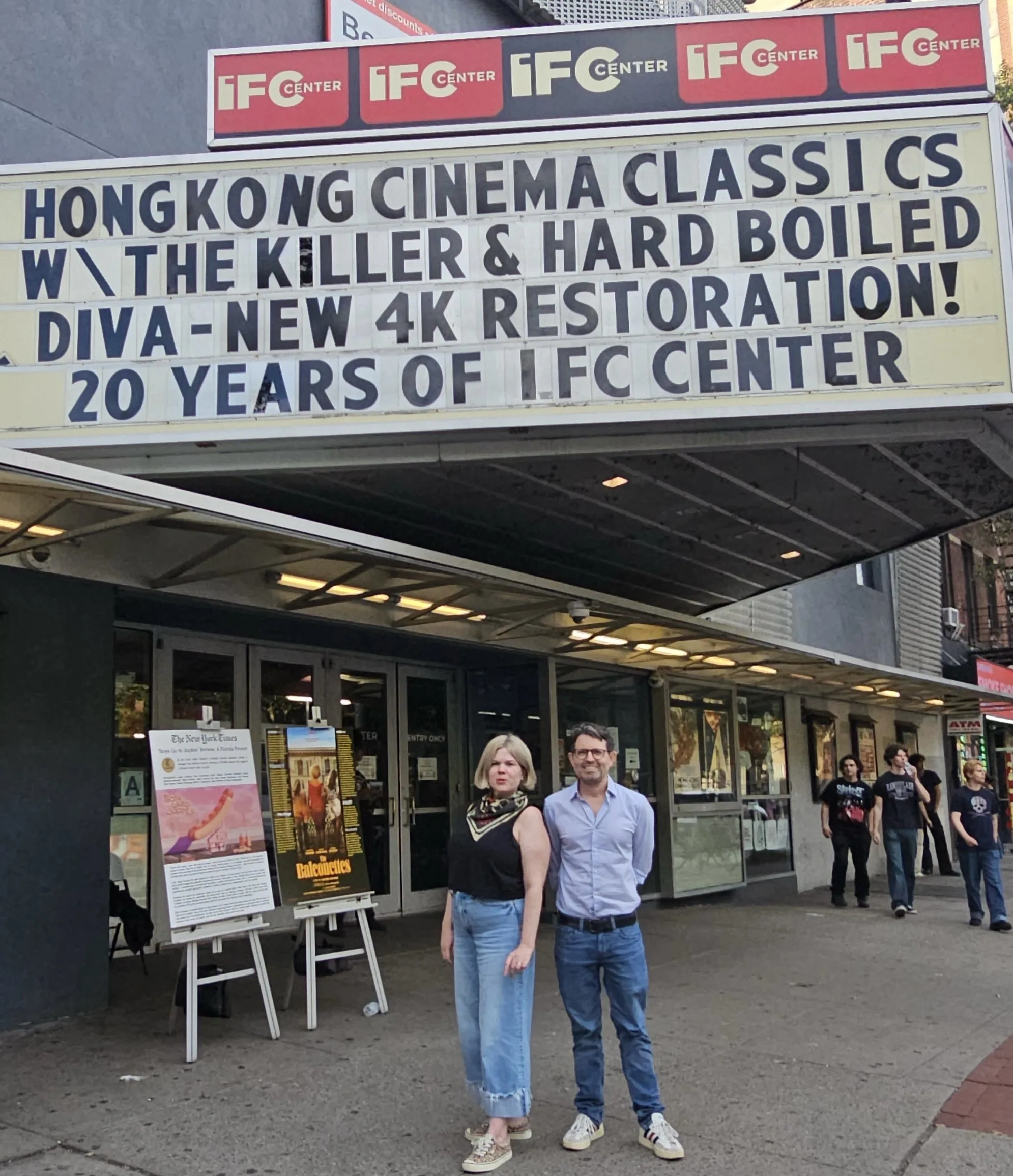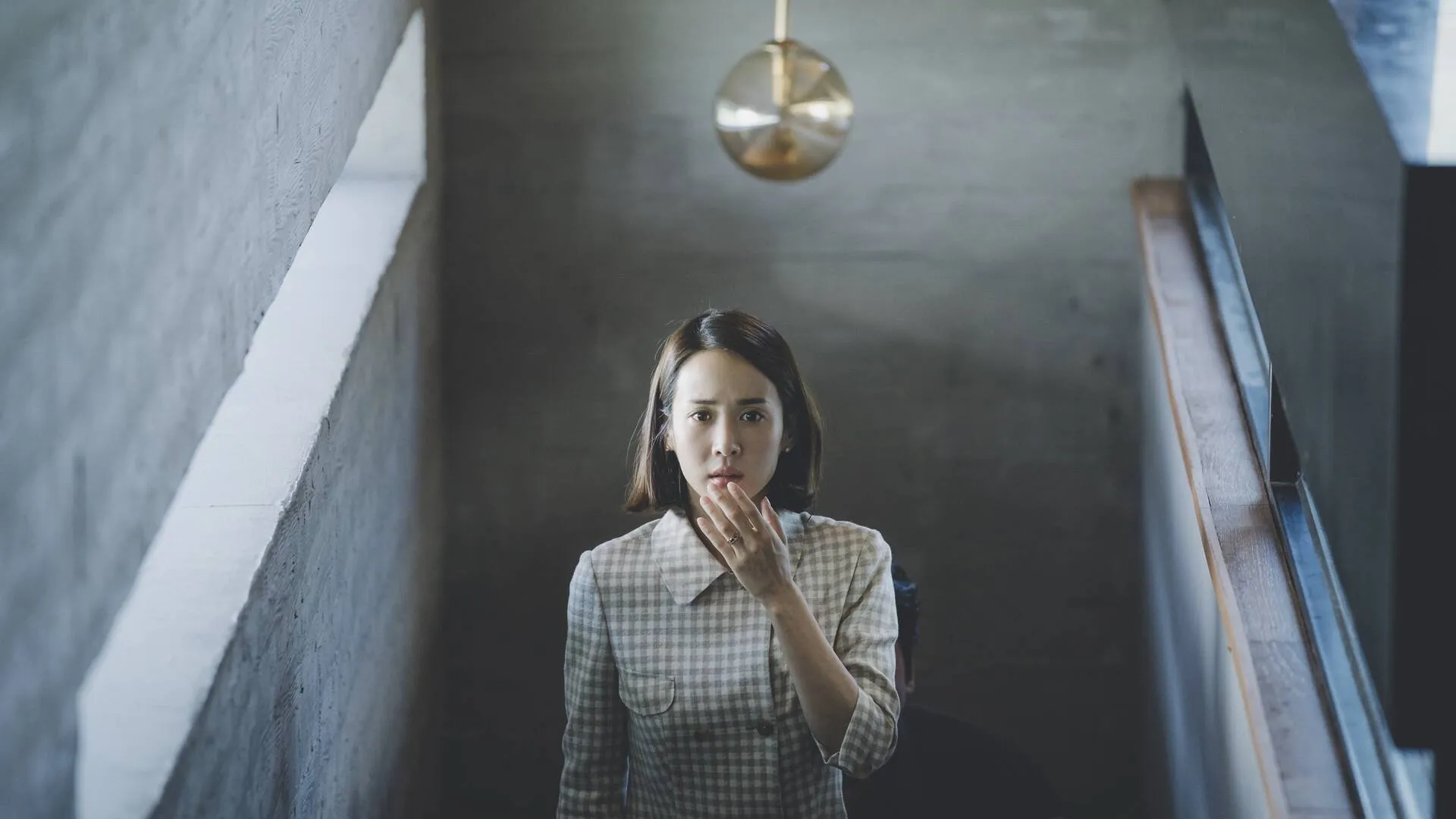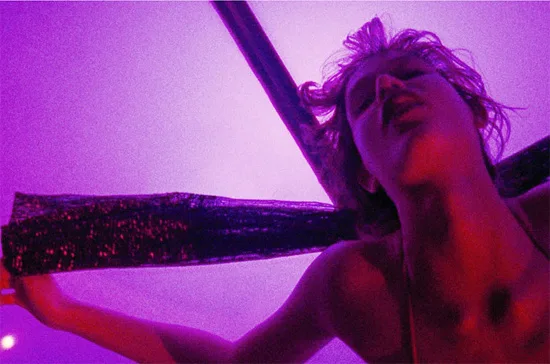The IFC Center, a five-screen art house cinema in New York’s West Village, is celebrating its 20th anniversary by showing one film from each year of its existence. The selection process was elaborate. The lineup was chosen by Harris Dew, the Senior VP and General Manager of IFC Center, and Caitlin Crowley, director of programs and promotions. Many factors were in play, such as how successful a film was with the IFC Center’s audience (which embraces certain movies far more enthusiastically than other New York venues) and how important a specific director was to the theater’s existence (Gaspar Noe, Lars von Trier, and David Lynch are just a few audience favorites). The theater’s top grossing film, Bong Joon-Ho’s “Parasite,” is included, as is their longest running film, “Boyhood.”
The 20th anniversary events will include panels honoring New York filmmakers and Q&A sessions with filmmakers Bill Morrison and Kirsten Johnson. The theater is also offering a “2 for 20” deal, where patrons can get two tickets for $20, less than the cost of a single ticket to other films. Dew and Crowley spoke to me about the series, the theater’s history, and their struggle to pick twenty movies to represent two decades of cinema. For the lineup and ticket information, click here. For the films listed by date and time sequentially, the lineup is also available in poster form as a PDF, here.

How would you describe IFC Center to someone who isn’t a New York moviegoer?
Harris Dew: The building has been a movie theater since 1937. It used to be called The Waverly, and it was the place where “The Rocky Horror Picture Show” became a midnight movie sensation, where a lot of John Waters films opened in the 70s, ‘80s and 90s, but it also played a lot of other things. Towards the end of its years as The Waverly, it ended up becoming part of a chain that was called Cineplex Odeon. It wasn’t like a big flagship cinema, but it was a solid movie theater.
When we opened it as IFC Center in 2005, the theater was dark for maybe two years as part of a long renovation. The Waverly had been a two-screener, but we opened it as a three-screen venue, and we had a cafe as well, on the ground floor. In 2009, the contract ran out for the folks who ran the cafe, and we were itching for more theater space, so we turned the cafe into three additional theaters to bring the total to five screens.
What kinds of movies is the theater most strongly identified with?
Harris Dew: We show a pretty broad mix of art house stuff. There are American independents, a lot of international films, a lot of documentaries. We are the only commercially operating cinema that still shows a short film before features. We do a different short film every week. We also have a very rough program of midnight movies every Friday and Saturday. We also produce the country’s biggest documentary festival, Doc NYC, every November.
How did the idea of selecting one film to represent each of these 20 years come about?
Caitlin Crowley: We were discussing different ways to celebrate the 20th anniversary this year. For the anniversary itself, which happened back in June, we showed all the films that we showed on our first day in business as the IFC Center, at 2005 ticket prices. But we also wanted to pay tribute to a broader range of films, so we thought it would be fun to just pick one film that we played for every year that we were in business.
There are a lot of great movies that are released in any given year, and a lot of great movies that play at IFC Center. So how did you pick just one per year?
Harris Dew: I’ve been at IFC Center since almost the very beginning. I started here a few weeks after we opened, so it’s been twenty-plus years for me. Caitlin just joined the team in 2023. So I had seen these films come through the first time around, but for the most part, Caitlin had been more of an audience member, so it was good to have her perspective, too. I had one view of what films meant to us internally, but she was able to bring a different perspective, as far as what kind of, what would be considered and IFC Center film to the public. So we wanted to do something that really represented the breadth of the programming.
We did think about including some revivals—you know, classics—just because that’s been a really important part of our programming. But it just made more sense for us to pay tribute to the new films we’ve shown. We had Charles Burnett’s “Killer of Sheep” in its first theatrical run ever. The Japanese horror film “House” had its first theatrical revival here.
Caitlin Crowley: We wanted to include filmmakers who were very established and who were strongly associated with IFC Center, like David Lynch and Lars von Trier, but we also wanted to highlight work by people who, at the time, were considered emerging filmmakers. We’re showing Barry Jenkins’ first film, “Medicine for Melancholy,” as an example of that kind of film.
Looking over this lineup, I see there are some movies that I guess you could call “conversation starters,” like “Enter the Void” and “Antichrist,” which have an extreme, even punishing aesthetic.
Harris Dew: “Enter the Void” was actually a big hit for us, andI think it definitely skews towards the midnight movie experience, which is often a trippy film. It spoke to the out-there nature, the edginess, of some of our programming.
I would imagine that Lars von Trier’s “Antichrist” is another one of those.
Harris Dew : Yeah, “Antichrist” is definitely another one. We’ve opened several big Lars von Trier films here. That was another thing that was nice to do with the series—to say, “Here are filmmakers who have had a significant impact on us.”
I recall that “Parasite” not only did really well for you, but it was a movie you knew would do really well for you. To meet demand, you added showtimes at hours when most folks would be eating breakfast.

Harris Dew: Yeah, definitely. It premiered at Cannes and it was a real sensation. And it just sort of built and built and built and built from there. Then it had its launch in North America, playing at the Toronto Independent Film Festival and the New York Film Festival. We could tell there was a built-up demand for people to see it. We knew that we were going to open it on multiple screens.
But as we got closer to opening day, we realized it was going to need a lot of screens. We put tickets on sale a little early for that one, and it totally sold out. It sold out every show on every screen that we had it on for that first weekend. It’s still our biggest grosser.
Really? Out of all the films you’ve shown in 20 years?
Harris Dew: That’s right, our biggest grossing film. It was a film that opened in October [of 2019] and played for months. It was doing so well that the only reason we took it offscreen in mid-March of 2020 was because of pandemic closure, otherwise we would’ve kept playing it, and it would have made even more.
What are some of the movies that are in the 20th anniversary lineup that did better at IFC Center than almost any other US theater?
Harris Dew: “Inland Empire” was one of those. The beauty of “Inland Empire” is that it did better here the first time around than it did anywhere else, and then we played the new restoration in 2024, and I think it did better here than any restoration in 2024 had done anywhere else. I think “Enter the Void” performed better here than anywhere else in its initial run. “Shoplifters,” I would say, did probably better here than anywhere else.
One of the more surprising titles on the list for me was Richard Linklater’s “Boyhood.” I love it, but it doesn’t immediately strike me as an IFC Center movie. It’s formally unusual, but more sweet than edgy.
Harris Dew: That’s our longest running movie ever. It played here for more than nine months. That was a film that our sister company, IFC Films, financed over a span of 12 years, which is a pretty astonishing thing. We had Linklater here, and [star] Ellar Coltrane, and some other folks associated with it. We had a gallery space on the second floor that usually shows vintage movie posters where we put some of the photography they had done on set.
We also did a series about time in the cinema in the lead-up to the release of “Boyhood,” because it felt like that’s what that film wrestled with more than anything, and it’s an aspect of cinema that we don’t always get to focus on. We had the Harry Potter series, which as you know consists of seven movies made with the same cast, so you can watch them all grow up. But we also showed movies that really dug into flashbacks, like Christopher Nolan’s “Memento,” which we’re showing again for this series.
Caitlin, what’s it like experiencing the IFC Center from both outside and inside?
Caitlin Crowley: I think I figured out when we were putting this list together that the first film I ever saw at IFC Center was Gregg Araki’s “Smiley Face.” I was a huge Greg Araki fan, and I was so excited to be living somewhere where they were showing his new film. I have always associated IFC Center with those really eye-popping kinds of moviegoing experiences. I saw “Antichrist here” opening weekend. I saw “The Human Centipede” here. Those are the kinds of films that I was thinking about a lot when we were talking about what makes us who we are, and what kinds of movies people come here to see.
Where did you grow up?
Caitlin Crowley: Just outside of Boston. They didn’t have anything close to me that was in the vein of IFC Center, though Boston has its own film culture. I worked at the Brattle Theater in Cambridge for a few years, and of course there’s The Coolidge in Brookline, but it was very exciting to move to a city that had so many more options.
Were there years on the calendar where the two of you went, “Well, obviously we’re showing this one”? And conversely, were there any particular years for which you struggled to settle on just one title?
Harris Dew: There were definitely years where it was almost not even a question. The first choice was Miranda July’s “Me and You and Everyone We Know,” which was the film that launched us, and it was the film that, you know, it was such an important film for us. The same is kind of true for “Inland Empire” and “Parasite” and “Boyhood.” For other other years, you know, there were a lot of options.
Did you have any guidelines or rules to make the programming a little easier?
Harris Dew: We didn’t want to represent any filmmaker twice. We wanted to make sure it was a really broad range that encompassed documentary and fiction film, a range of international selections, and filmmakers from different generations. We were trying to build out a program that represented the eclectic nature of everything that we’ve shown in microcosm.
Caitlin Crowley: We had to make some very difficult decisions. Jeff Nichols’ first feature ‘Shotgun Stories,” from 2008, was a film that I really, personally love, but we decided it would be exciting to showcase Barry Jenkins’ first film instead, because it was a slightly under-seen film, even for people who love his work.
Is there anything else you wanted to say before we part?
Harris Dew: One is, I wanted to say that we’ve got work by some New York filmmakers represented, because New York filmmakers have been so important and so supportive for us. We got lucky that both Bill Morrison for “Dawson City: Frozen Time” and Kirsten Johnson for “Cameraperson” are going to be able to be here, to appear with their films and talk afterwards. The only other thing I was going to flag is—and I’m gonna get sappy here!—I feel incredibly lucky to have been doing this for 20 years, and that we’re still around after 20 years.












